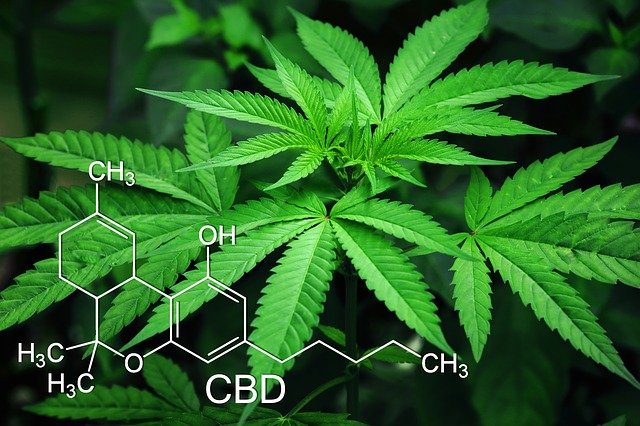Globally, cannabis is among the most widely abused psychoactive substance. Cannabis is now part of daily life for thousands, if not millions, of people in the UK today. The popularity of this recreational drug in the UK has risen rapidly over the recent years, overtaking the abuse of drugs like opiates
The misuse of cannabis will soar in the coming years. We’ll discuss the extent of the use of this illicit drug, its addictive potential, and its associated health effects.
Cannabis Addiction by the Numbers
According to Gov.UK, cannabis ranks top as the most used illicit substance in every country in the UK. Unlike other drugs, the prevalence of cannabis abuse, or marijuana as many call it, is closely linked to the flawed reasoning from users that the drug has no health risks. Almost all, if not all, cannabis users view marijuana as a natural substance that’s entirely safe for use.
This misguided thinking has seen many downplaying the dangers of chronic cannabis use. Unfortunately, that’s how addiction sets in, but thankfully getting help for cannabis addiction is possible after the world began understanding this substance’s effect on the brain better.
A publication by UK parliament reveals that between 1.5 to 2 million people in the UK use cannabis regularly for recreational purposes (this figure represents both adults and teenagers).
Roughly 1.4 million people in the UK rely on street-available cannabis to manage chronic health conditions. Black market cannabis is unsafe, as its composition isn’t regulated.
Findings by America’s Center for Disease Control reveal that:
- There’s a 10% likelihood that a cannabis user will become addicted
- Roughly 3 in every 10 people who use cannabis suffer from cannabis use disorder
- The risk of developing cannabis use disorder is greater for those using cannabis in their teenage years
Cannabis is more potent now than ever, increasing the likelihood of marijuana users developing dependence on the drug.
In 2020, a team of researchers from the University of Bath examined over 50,000 street cannabis samples obtained from different countries, including the UK.
Their study drew a disturbing conclusion — the cannabis used in these current times has a higher concentration of tetrahydrocannabinol, commonly known as THC (the intoxicating ingredient in cannabis).
What does this imply?
That cannabis users today are consuming the drug in its strongest form, and street-purchased cannabis is more harmful today than it was years ago.
To add to that, the risky methods of cannabis consumption, such as dabbing and vaping, result in individuals consuming high-potency cannabis.
The new methods of using cannabis make the drug more powerful.
People who rely on street-available cannabis for medicinal or recreational purposes are consuming THC in excessive doses, making themselves prone to severe addiction outcomes.
It’s worth noting that:
- As the strength of black market cannabis goes up, so will the number of individuals entering substance addiction treatment for cannabis use disorders.
- The prevalence of marijuana addiction is placing a heavy burden on UK’s healthcare system owing to the increase in hospitalisations and emergency visits linked to cannabis-related harms.
Cannabis addiction is mainly responsible for the high number of people with co-occurring cannabis-induced psychotic illnesses.
Chronic cannabis use is a risk factor for the development of psychotic conditions.
A study published by the BMJ journal shows that a person with cannabis addiction will most likely experience frequent psychotic episodes throughout their lifetime.
Cannabis dependence worsens psychosis symptoms
Abuse of cannabis is common amongst persons with mood and anxiety disorders. These individuals opt to self-medicate with cannabis, as it improves their symptoms immediately. Sadly, cannabis dependence complicates the effective management of these disorders.
Each year, thousands of people in the UK perish in motor vehicle accidents, while others sustain critical injuries from these accidents. Substance abuse, including cannabis intoxication, is among the leading causes of these deadly accidents.
A publicised study by the British Medical Journal highlighted the rise in cannabis dependence among pregnant women in the UK. The THC in cannabis passes through the placenta to the baby, affecting normal fetal growth.
As cannabis exposure to unborn babies increases, we will continue witnessing adverse birth outcomes, including:
- Infants with low birth weights
- Stillbirths
- Infants born preterm
- Brain development issues in babies as they grow older.
Marijuana addiction opens the door to the abuse of hard drugs like heroin, particularly amongst teenagers. They develop the desire to experiment with other substances that give the same mood-altering effects.
Cannabis addiction has largely contributed to poor life outcomes across the UK. Chronic users of this substance are experiencing lower career achievements, poor educational outcomes, and reduced life satisfaction.
We Need to Take Cannabis Addiction Seriously
These shocking findings speak for themselves. Cannabis addiction and its adverse health outcomes pose a significant threat to the UK’s public health. It’s only a matter of time before the regular users of this “harmless” drug find it hard to break free from its dependence.











